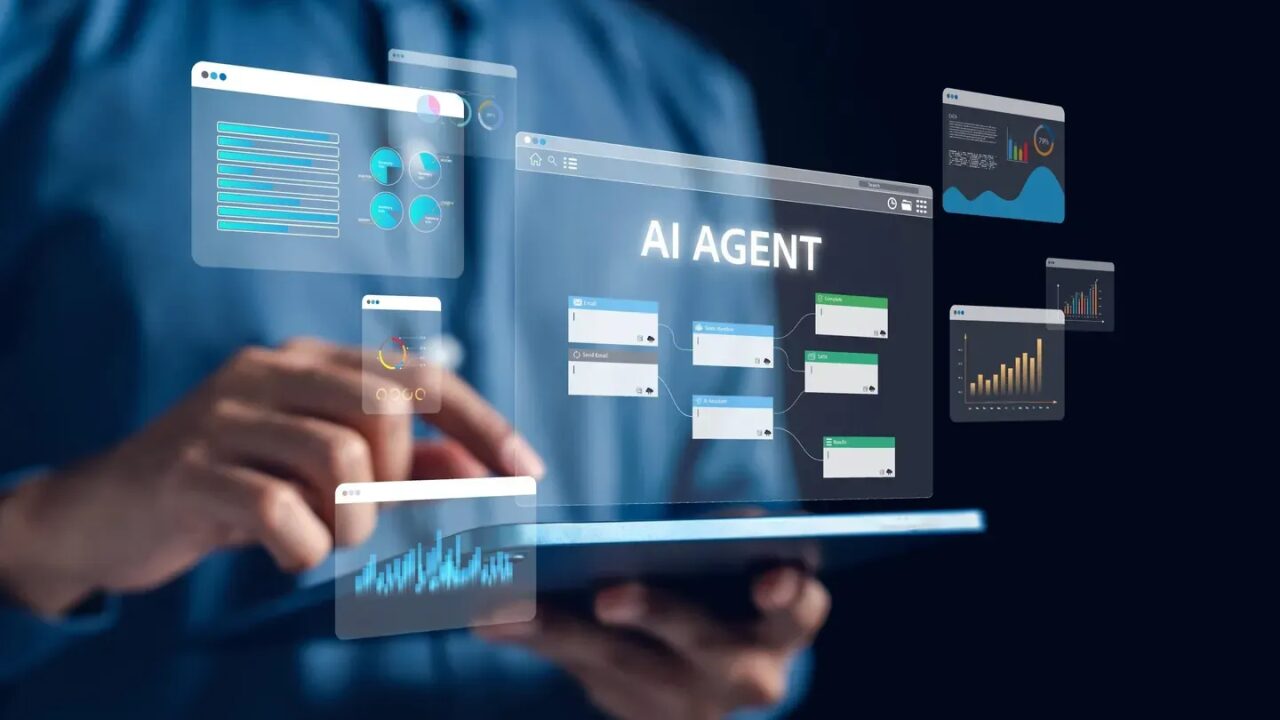Dreamforce 2025 Proved The Agentic Enterprise Has Arrived
28 October 2025
I left Dreamforce 2025 with Metallica still thundering in my head and one clear thought. This was the year enterprise AI grew up. Dreamforce was the most energizing technology event I have attended, a rare blend of breakthrough tech, bold customers, celebrity energy, and a stadium show that rattled the windows of San Francisco. If last year felt like concept cars on a turntable, this year felt like fleets on the road.

Inside The Agentic Enterprise
AI dominated every hallway conversation and every main stage. The centerpiece was Salesforce’s move from isolated assistants to an end-to-end agentic platform. The general availability of Agentforce 360 set the tone, positioned as the next step beyond classic CRM into a world where digital workers collaborate with people across every workflow. I spent time with the teams and in the product zones, and the story holds together. A new conversational Agentforce Builder lets teams design, test, and ship agents using natural language. Agentforce Voice brings native voice to service journeys so IVR becomes a real conversation. Agent Script plus the Atlas Reasoning Engine pair deterministic workflows with flexible LLM reasoning, which matters when accuracy, auditability, and speed all have to coexist. Data 360, Customer 360 Apps, and Slack weave the context layer that makes agents useful rather than novel.

The credibility boost came from customer evidence. Salesforce highlighted results across twelve thousand Agentforce customers, including Reddit deflecting a large portion of support cases with faster resolution, and OpenTable resolving a majority of inquiries autonomously. Walking through Agentforce City made the vision tangible. You could step from a PepsiCo store to a Williams Sonoma showroom to a Heathrow terminal in a few minutes. At each stop, agents were already doing real work, from service triage to guided selling to operations optimization.
If you want a deeper dive on the customer side, you can watch my interviews by following the links.
- PepsiCo shared how digital labor is scaling support for more than a million small retailers while empowering one hundred and twenty thousand field reps with better routes, planograms, and on-shelf execution. https://www.youtube.com/watch?v=8_A0hTboEa8&t=32s
- Pandora showed how an agent can replicate the emotional nuance of an in-store sales associate online through its Gemma gift advisor. https://www.youtube.com/shorts/Y32yUGlgvRY
- Indeed talked through what it takes to move from experiments to enterprise scale, with measurement-first thinking and function-specific upskilling that drives daily adoption across the company. https://www.youtube.com/watch?v=OIEMtq05MfI&t=28s
I also sat down with Adam Evans, EVP and GM of AI at Salesforce, to talk about the three categories of use cases every company should prioritize: serving customers, boosting employee productivity, and end-to-end agentic workflows. We explored why many pilots fail and what separates a prototype from production, including governance, telemetry, performance management, and a clear definition of value. You can watch the conversation here: https://www.youtube.com/watch?v=bsxrTa9YL3Y&t=18s
My LinkedIn poll during Dreamforce gauged where organizations stand on this journey. Out of 253 respondents, only 17% said they’re already scaling agents, while 43% admitted they’re not ready yet. That tells you how early we still are in this transformation. Many are “planning their approach,” which mirrors what I saw at Dreamforce: curiosity and ambition, but also caution and learning in real time.
Slack Emerged As The Agentic OS
A second headline was the transformation of Slack into an operating system for agents. Core Agentforce apps surface directly inside Slack, so work happens where conversations already live. A new Slackbot, designed as a personalized agent, learns your preferences and makes smart suggestions. Slack connectors with Gmail, Outlook, and Dropbox are planned for early 2026 so teams can use natural language to pull facts, files, and context across systems without tab surfing. I have long argued that conversational context is the most underused data set in business. Slack’s positioning recognizes that value and makes agents feel native rather than bolted on.
I also ran a LinkedIn poll to take the temperature on this innovation. Almost half (48%) described themselves as “skeptical but curious,” while a small group already sees it happening. That cautious optimism means people can see where this is going, but they’re still figuring out the path from today’s pilots to tomorrow’s production reality.
From Demos To Deployment
Across sessions, the shift from marketing sizzle to operational detail was unmistakable. Customers were talking about staffing plans for digital workers, performance dashboards for agents, and playbooks for safe rollout. Governance frameworks, security integrations, and agent orchestration moved from the margins to the main stage. MuleSoft’s Agent Fabric brought order to what could become agent sprawl, with a registry, governance, and observability that enable agents to collaborate across domains without creating new silos. Table stakes topics like data quality, lineage, and semantic consistency were everywhere, from Data 360 to Tableau’s semantics layer. These are the boring superpowers that make AI trustworthy at scale.
Physical Intelligence Took The Stage
Beyond agentic AI, one of the most electric conversations involved physical intelligence. Brett Adcock of Figure AI joined Marc Benioff for a memorable exchange about humanoid robots, general robotics intelligence, and near-term factory work. Adcock’s framing was provocative. He argued that the hard problem is not manufacturing, it is cognition for embodied systems, and that modern neural networks are the only viable path given the degrees of freedom.

At one point, he described what Figure is building as “a new species” — synthetic humans that can learn, adapt, and ultimately perform the full range of human physical tasks. It was a striking way to frame the moment. He shared how their robots have already been operating on a BMW production line and how the company’s roadmap aims to move from narrow, repetitive functions to general-purpose capability, controlled by neural models rather than pre-programmed routines.
The through line was clear. The next wave will move from digital agents in screens to embodied agents in the world — systems that understand both data and the dynamics of the physical environment.
Two Leaders Framed The Stakes
Two conversations captured the scale of change in different ways. Dario Amodei, CEO of Anthropic, described a near-horizon where agents complete end-to-end tasks and labor disruption accelerates in code, finance, and healthcare. He reiterated a theme that stood out all week: strong upside with real responsibility around reliability and adaptation for people whose jobs are changing. Google CEO Sundar Pichai painted a longer arc, with digital superintelligence as a collaborator and a practical warning to prepare for quantum resilience in the next few years. He returned to stewardship again and again, bringing the discussion back from novelty to duty. Together, these perspectives bookended the mood of Dreamforce, bold optimism balanced with the ethics and governance needed for durability.
Creators, Authenticity, And The AI Wave
On a more personal note, I loved spending time with will.i.am to talk about creativity in an age of abundant AI. His take on authenticity was piercing. AI can paint an illusion of originality when it is really remixing the world. If you start with a thin prompt, you can end up with the same stew as everyone else. His advice was to start with a formed idea of your own, guard your data, and prize uniqueness even when it feels lonely. He also put a practical stake in the ground around access and opportunity, from adopting classrooms to building robotics programs that give young people durable skills. It was a conversation that mixed joy with responsibility in a way only he can deliver.

AI Meets Golf, Precision Meets Play
I’ll admit I went to this session for my son, who has recently discovered his passion for golf. It turned out to be one of my favorite moments of the week. Bryson DeChambeau explained how AI is transforming both training and fan experience. He described an agent as a golf coach on your phone that analyses thousands of biomechanical metrics in seconds and delivers personalized drills for that day, bringing pro-level feedback within reach for any amateur. On the broadcast side, AI already powers cloud-produced feeds, ball-tracer innovations, agent-assisted commentary, and predictive caddie-style guidance. The vision is a customized, second-screen experience where fans follow their favorite players with the stats that matter to them. Sport often foreshadows the future of human–agent collaboration, in ways that are both entertaining and instructive. This session did exactly that.
A Few Caution Lights That Matter
Dreamforce traded in realism as much as excitement. Agents require clear guardrails, data provenance, policy enforcement, and a human-in-the-loop design. Slack’s evolution helps by grounding actions in conversations that real teams are already having. Data 360 and orchestration tools help by giving agents consistent definitions and safe coordination. Security partners and clean room collaborations help by protecting what should never leak. The lesson is straightforward. The future belongs to teams who treat AI as a managed workforce with accountability and reporting, not as a bag of shiny tools.
Metallica And The Soundtrack Of Transformation
Dreamfest deserves its own paragraph. Seeing Metallica from courtside seats would be a lifetime moment on any week. That week, it felt almost poetic. There is a line in Nothing Else Matters that stuck with me as I walked out. Trust I seek and I find in you. That is the enterprise AI brief in a sentence. Trust in the data, in the guardrails, in the reasoning, in the orchestration across teams. Without trust, AI is a guitar without strings. With trust, it can fill a stadium.

Why This Week Will Be A Marker We Remember
When I boarded my flight back to London, I wrote down five reasons this Dreamforce will be a reference point. Agents moved from idea to operating model. Slack stepped forward as the place where humans and agents actually work together. Customers spoke in specifics and scale rather than pilots and press releases. Physical intelligence edged closer to everyday work. Creativity and responsibility shared the same stage, from will.i.am‘s call for uniqueness to leaders debating quantum-ready security and labor adaptation. Put simply, the infrastructure is here, the playbooks are forming, and the economics are compelling.
Dreamforce this year was a reminder that technology is only interesting when it helps people do great work. That happened again and again. The agentic enterprise is no longer a slogan. It is a set of living systems and habits that change how companies operate. Nothing else matters if we cannot trust it. Everything becomes possible when we can.
Here is a little summary video of my week.
#SalesforcePartnership #Sponsored
Related Articles
AI Agents Lead The 8 Tech Trends Transforming Enterprise In 2026
By now, “smart” versions exist of just about every home appliance, gadget and gizmos we can think of. However, manufacturers continue[...]
7 Quantum Computing Trends That Will Shape Every Industry In 2026
By now, “smart” versions exist of just about every home appliance, gadget and gizmos we can think of. However, manufacturers continue[...]
5 Business Trends Every Company Must Prepare for in 2026
By now, “smart” versions exist of just about every home appliance, gadget and gizmos we can think of. However, manufacturers continue[...]
Technology in Action: My Key Takeaways on How AI and Quantum Are Accelerating Global Transformation
By now, “smart” versions exist of just about every home appliance, gadget and gizmos we can think of. However, manufacturers continue[...]
8 AI Ethics Trends That Will Redefine Trust And Accountability In 2026
By now, “smart” versions exist of just about every home appliance, gadget and gizmos we can think of. However, manufacturers continue[...]
Why The AI Supercycle Will Fail Without Advanced Networks
By now, “smart” versions exist of just about every home appliance, gadget and gizmos we can think of. However, manufacturers continue[...]
Sign up to Stay in Touch!
Bernard Marr is a world-renowned futurist, influencer and thought leader in the fields of business and technology, with a passion for using technology for the good of humanity.
He is a best-selling author of over 20 books, writes a regular column for Forbes and advises and coaches many of the world’s best-known organisations.
He has a combined following of 4 million people across his social media channels and newsletters and was ranked by LinkedIn as one of the top 5 business influencers in the world.
Bernard’s latest book is ‘Generative AI in Practice’.










Social Media